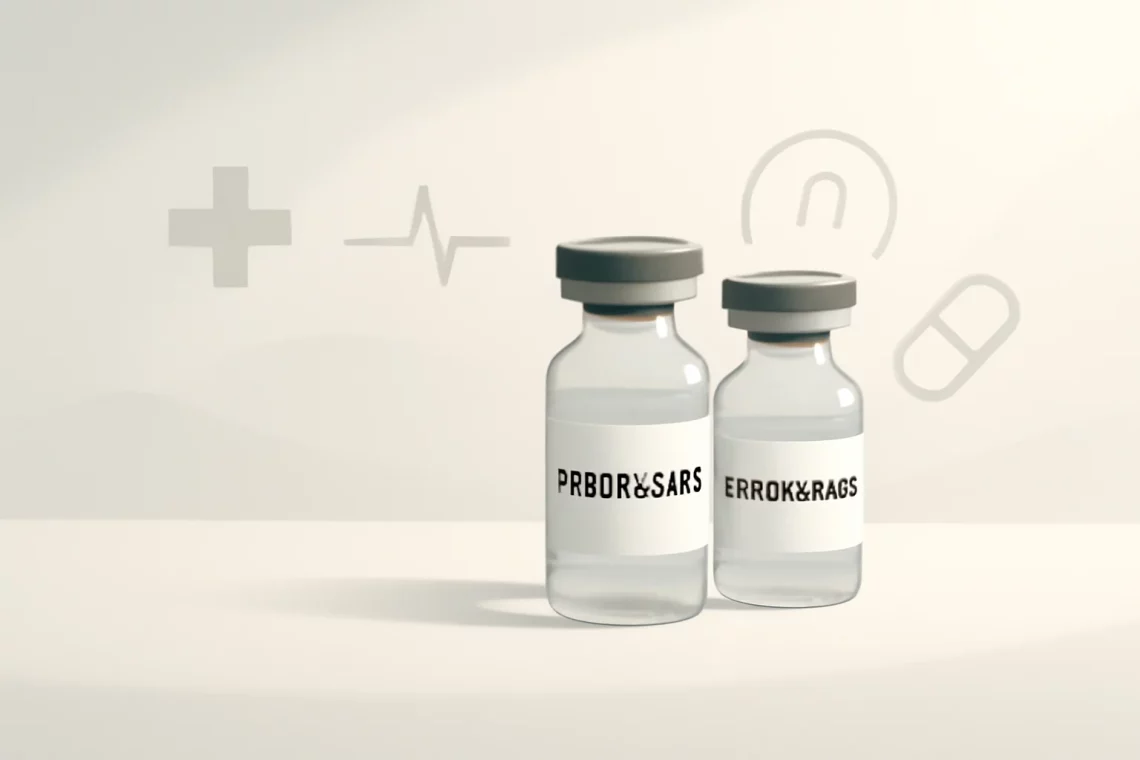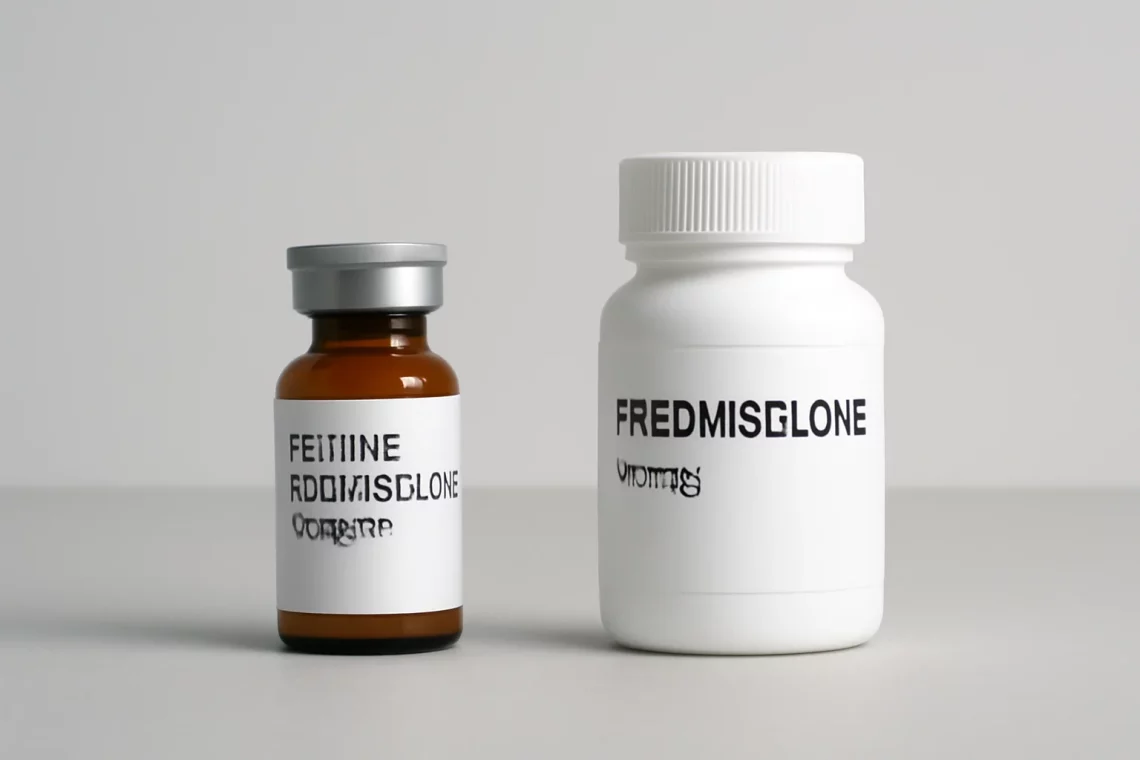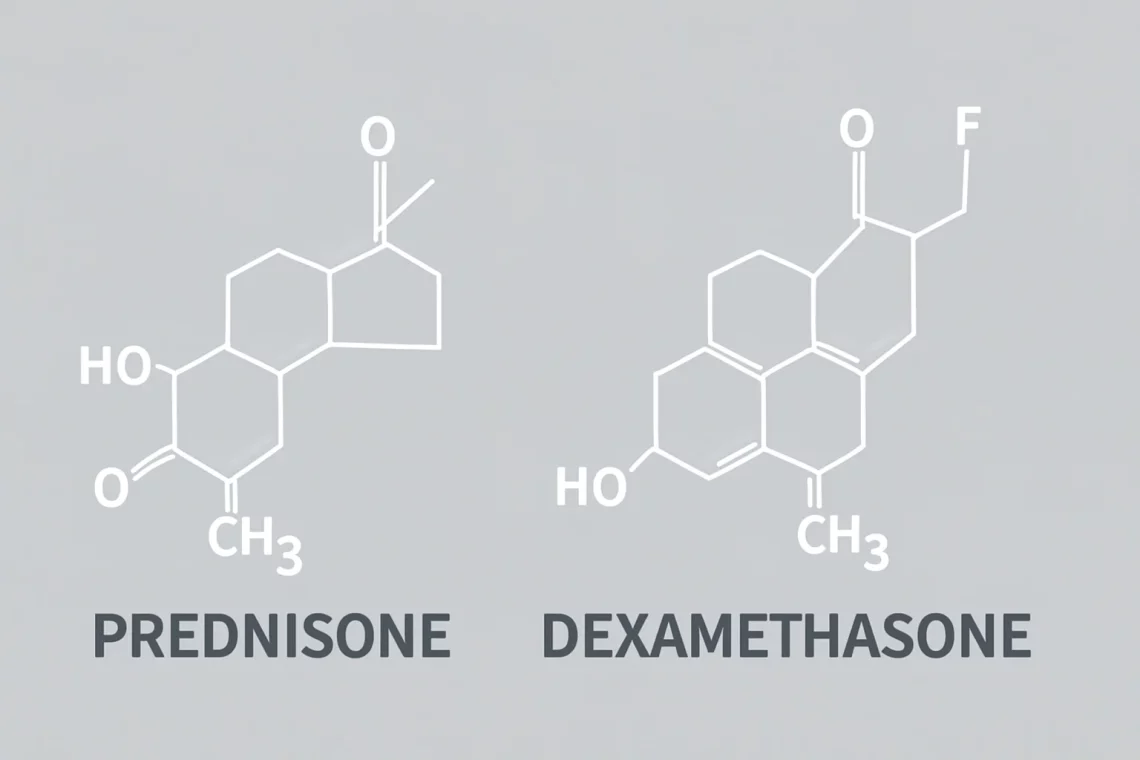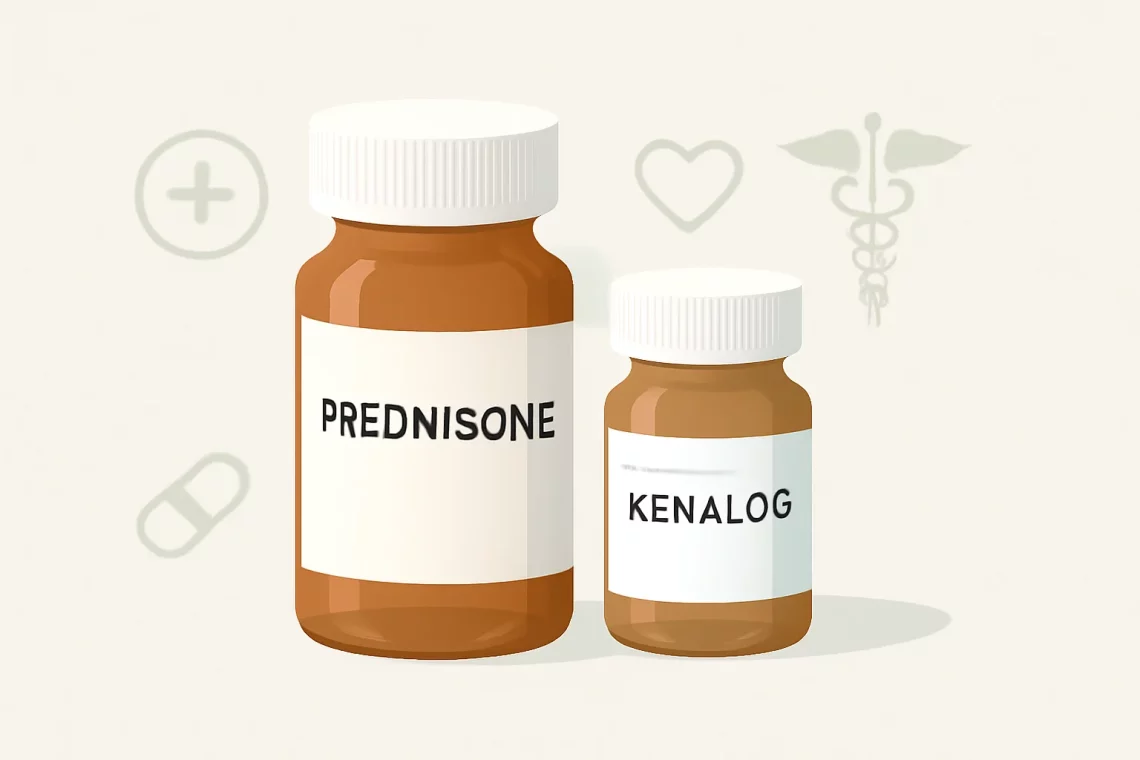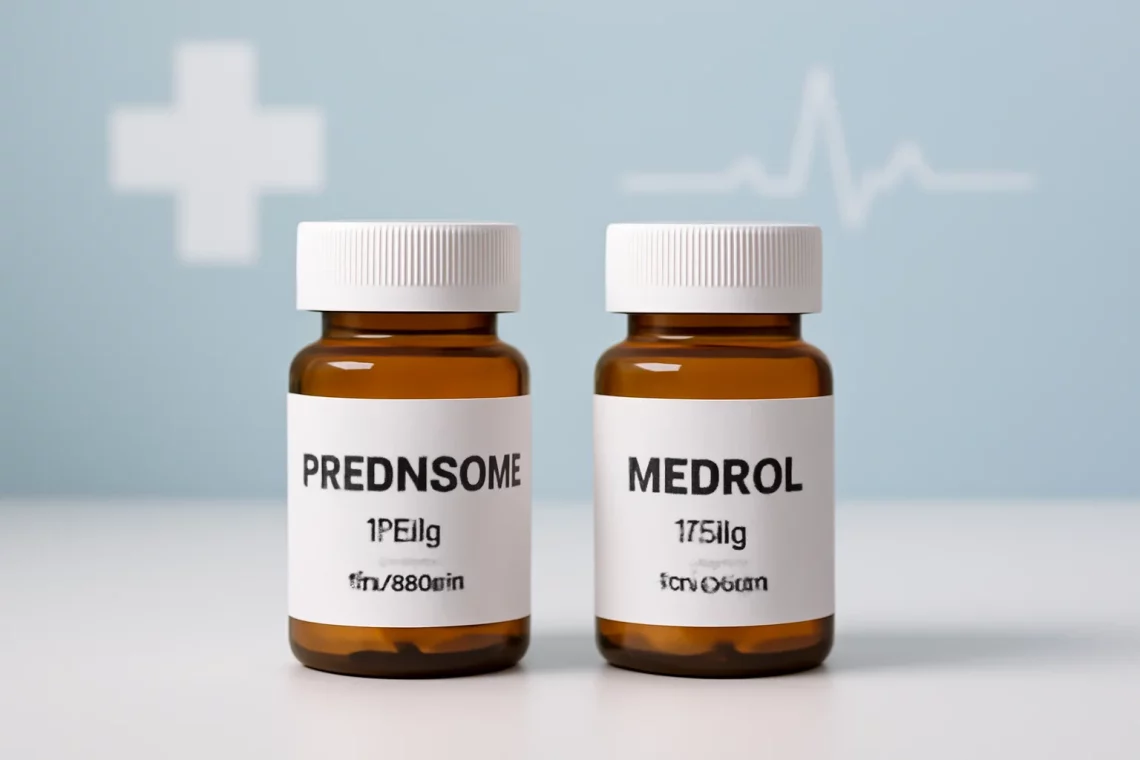-
Prednisone vs Methylprednisolone: Which Is Right for You?
Prednisone and methylprednisolone are both corticosteroids that play a crucial role in the management of various inflammatory and autoimmune conditions. These medications are synthetic derivatives of cortisol, a hormone produced by the adrenal glands. They work by mimicking the effects of cortisol, thus helping to reduce inflammation, suppress the immune system, and alleviate symptoms related to a wide range of disorders, including allergies, asthma, rheumatoid arthritis, and certain skin conditions. While both medications share many similarities in their mechanism of action and therapeutic uses, they also have distinct differences that may influence a healthcare provider’s choice when prescribing treatment. Factors such as the severity of the condition, the patient’s overall…
-
Prednisone vs Triamcinolone: Key Differences and Uses Explained
Prednisone and triamcinolone are both corticosteroids, widely used in the medical field to treat a variety of health conditions. These medications are synthetic derivatives of natural hormones produced by the adrenal glands, primarily responsible for regulating inflammation and immune responses in the body. While they share a common purpose in alleviating symptoms associated with inflammatory and autoimmune disorders, their specific applications, mechanisms of action, and side effects can differ significantly. The importance of understanding the differences between these two medications lies in their varying effectiveness for particular conditions, as well as their distinct side effect profiles. Patients and healthcare providers alike must navigate these differences to determine the most appropriate…
-
Methylprednisolone vs Prednisolone: Key Differences and Uses
Methylprednisolone and prednisolone are two corticosteroid medications commonly used in the treatment of various inflammatory and autoimmune conditions. These drugs mimic the effects of hormones that are naturally produced in the adrenal glands, helping to reduce inflammation and suppress the immune response. While they share many similarities, understanding the differences between these two medications is crucial for both patients and healthcare providers. The choice of medication can significantly impact treatment outcomes, as each has unique properties that may suit different conditions or patient profiles. Factors such as the potency, duration of action, and side effects play vital roles in determining which medication is more appropriate in a given situation. As…
-
Prednisone vs Hydrocortisone: Key Differences and Uses Explained
Prednisone and hydrocortisone are two corticosteroids that are commonly used in the medical field for their anti-inflammatory and immunosuppressive properties. These medications have been pivotal in treating a variety of conditions, including autoimmune diseases, allergies, and certain cancers. Despite their similarities, there are significant differences between the two that can influence a healthcare provider’s choice in prescribing one over the other. Corticosteroids, like prednisone and hydrocortisone, are synthetic drugs that mimic the effects of hormones produced by the adrenal glands. They play a crucial role in managing the body’s response to stress and inflammation. Understanding the nuances of these medications is essential for both healthcare professionals and patients alike, as…
-
Prednisone vs Dexamethasone: Key Differences and Uses Explained
Prednisone and dexamethasone are two widely used corticosteroids that play significant roles in the treatment of various medical conditions. These synthetic drugs mimic the effects of hormones produced by the adrenal glands, which are essential for regulating metabolism, immune response, and inflammation in the body. While both medications share similarities, they also possess distinct characteristics that influence their use in clinical practice. Understanding the differences between prednisone and dexamethasone is crucial for healthcare professionals and patients alike. The choice of one over the other can significantly affect treatment outcomes, side effects, and overall patient experience. As corticosteroids, both medications can effectively manage conditions such as allergic reactions, autoimmune diseases, and…
-
Prednisone vs Kenalog: Key Differences and Uses Explained
Prednisone and Kenalog are two medications often utilized for their anti-inflammatory and immunosuppressive properties. While both drugs can be effective in treating a variety of conditions, they differ significantly in their composition, mechanisms of action, and the specific situations in which they are used. Understanding these differences is crucial for patients and healthcare providers alike, as it can significantly influence treatment decisions. Prednisone is a synthetic corticosteroid that mimics the effects of cortisol, a hormone produced by the adrenal glands. It is widely prescribed for conditions such as asthma, allergies, arthritis, and autoimmune diseases due to its ability to reduce inflammation and suppress the immune system. On the other hand,…
-
Prednisone vs Medrol: Key Differences and Uses Explained
Prednisone and Medrol are two widely used corticosteroids that play a significant role in the treatment of various medical conditions. Both medications are synthetically derived from naturally occurring hormones produced by the adrenal glands, and they possess powerful anti-inflammatory and immunosuppressive properties. The use of corticosteroids has become increasingly common in modern medicine, providing relief for patients suffering from autoimmune disorders, allergies, asthma, and a range of other inflammatory conditions. However, despite their similarities, Prednisone and Medrol exhibit distinct pharmacological profiles, dosing regimens, and side effect profiles that can influence their effectiveness and safety in individual patients. As patients and healthcare providers navigate the complexities of these medications, understanding the…
-
Dexamethasone Use in Horses: Benefits and Considerations
Dexamethasone is a synthetic corticosteroid that has gained prominence in the veterinary field, particularly in equine medicine. This powerful anti-inflammatory and immunosuppressive agent is often utilized for its therapeutic benefits in horses suffering from various conditions. The use of dexamethasone can be crucial in managing different equine ailments, ranging from allergies and respiratory issues to musculoskeletal disorders. In the world of equine care, understanding the pharmacology and application of dexamethasone is essential for veterinarians and horse owners alike. While its benefits are significant, it’s equally important to consider potential side effects and the importance of proper dosing. The balance between achieving therapeutic effects and minimizing adverse reactions can be delicate,…
-
Understanding Dex for Horses: Benefits and Usage Explained
Understanding Dex for Horses: Benefits and Usage Explained Dex, short for dexamethasone, is a synthetic corticosteroid that is widely used in veterinary medicine, particularly for horses. This powerful anti-inflammatory drug is often employed in the treatment of various conditions, including allergies, autoimmune disorders, and certain types of infections. The use of dexamethasone in horses has gained popularity due to its effectiveness in managing inflammation, pain, and a variety of other health issues. Veterinarians often turn to dexamethasone when other treatments have failed or when a rapid response is required. Its ability to suppress the immune system can also be beneficial in specific scenarios, such as during severe allergic reactions or…




